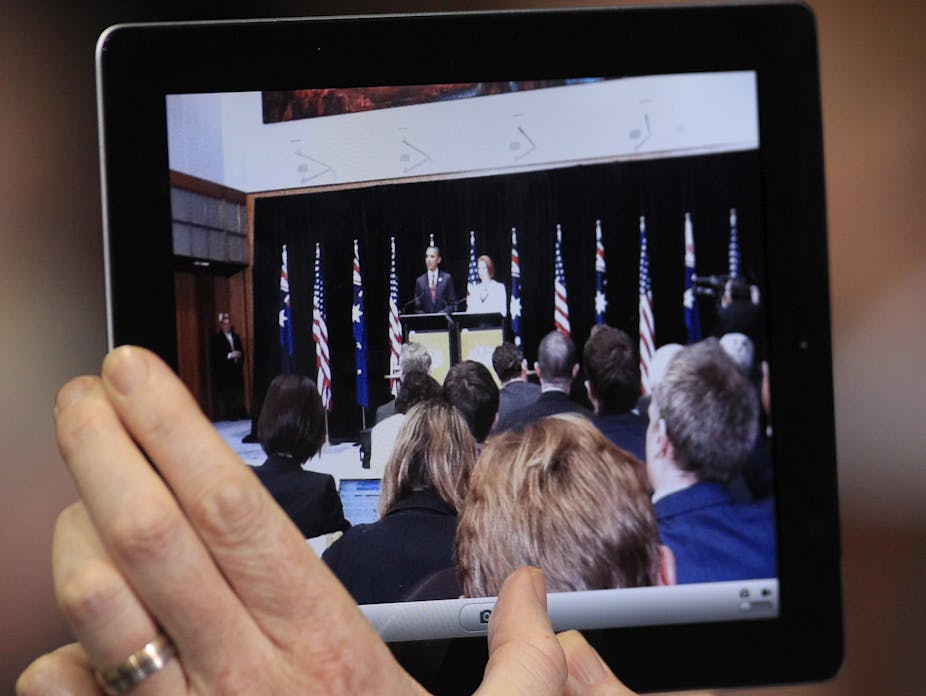Google “bombs”, Twitter “spam bots” and astroturfing have become tools of the trade during the US election campaign, and are likely to feature in the run-up to next year’s Australian election say experts.
US computer scientists Panagiotis Metaxas and Eni Mustafaraj report on the role of social media, and its use by political parties in an article published today in Science, the journal of the American Association for the Advancement of Science.
The authors write that Twitter bombs, which involve sending unsolicited replies to specific users via Twitter in order to get them to pay attention to a cause, have become common practice. The report also details specific Twitter spam campaigns, astroturfing - the creation of fake grassroots movements, and Google bombs that exploit the descriptive power of anchor text to associate negative words with the names of political candidates.
“Even more than in previous elections, we should expect that all candidates and political parties will use social media sites to create enthusiasm in their troops, raise funds, and influence our perception of candidates,” the authors write.
They argue the relatively simple manipulation of social media and search results has been underappreciated by the media and the general public.
It’s all part of a trend that requires political candidates to be armed as well as those who seek to attack them said Sean Rintel, lecturer in strategic communication at the University of Queensland.
In the case of Google bombing, the most famous case which involved George W. Bush being linked with the term “miserable failure”, Mr Rintel said it was no longer sufficient for candidates to issue a press release saying “that’s not me”.
“In the moment you need ways of getting out something that is equally as effective at grabbing attention through search,” Dr Rintel said.
“The speed with which an issue can pop up and then suddenly become a problem for a candidate to deal with has become much faster,” he said.
“Candidates have to be willing to respond quickly and armed as well as those on the other side.”
Australian campaign offices will be watching this closely and using these tools where they can said Tauel Harper, chair of communication studies at the University of Western Australia.
“My overwhelming impression is that Google bombs and Twitter spam bots haven’t really arrived yet but are likely to emerge at the next election,” Dr Harper said.
However, Dr Harper said he’d like to think Australian political culture is slightly less suited to such devices, with Australian politicians trying to use social media as a way to market their humanity.
“Using such large scale technical devices will undermine that effect when exposed,” Dr Harper said.

